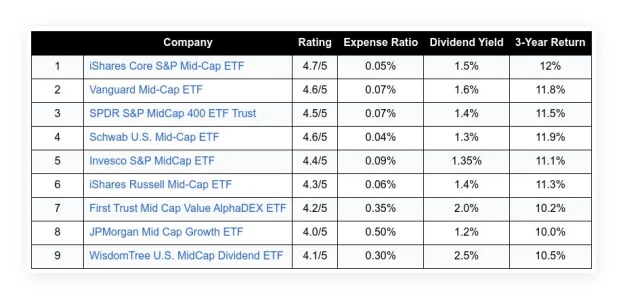Most college students spend their energy on midterms, tuition bills, Post Malone concerts, spring break plans, and maybe landing that first post-grad job. Retirement? That feels like a lifetime away. Thinking about something that won’t happen for decades can seem unnecessary when you’re a teenager or in your 20s.
The truth is, starting your retirement savings in college can be a smart move financially. Thanks to compound interest and the power of time, even small contributions during your student years can snowball into wealth later. What’s more, when you start building good financial habits now, you’ll have the freedom, security, and options you need in the future.
In this article, we’ll explain why saving in college is essential, what retirement accounts are, how they work, and how much you should set aside.
Table of Contents
ToggleWhy It’s Important to Start Saving Early
Although it might not seem like a big deal today, in college (or even earlier), you should start saving for retirement for several reasons.
Compound interest’s power.
Compound interest is “interest on interest.” Basically, it’s the interest you earn on your principal (initial amount) plus the interest you’ve accumulated from previous periods. As a college student, this can work both for and against you. It’s all about time if you want it to work for you.
For example;
- If you invest $100 a month starting at age 20, you will have over $500,000 by 65 — assuming a 7% average return.
- However, if you wait until 30, you’ll only have about $250,000 —half as much —despite investing for 10 fewer years.
Simply put, you can reach the same goal with less effort the earlier you start.
Small deposits go a long way.
It doesn’t matter how much cash you have to get started. Over time, even $25–$50 a month can build up into a meaningful nest egg. It’s like planting a seed. After a while, it will grow into a tree that will provide shade and security.
Building lifelong habits.
It’s not just about the money when it comes to saving for retirement in college. It’s also about discipline. You’ll be more likely to stick to your savings plan after graduation if you practice setting aside a portion of your income now. Often, when habits are formed early, they stick.
Protecting yourself from the future.
The cost of living will increase as you get older. Healthcare will become more expensive. Social Security may no longer be as reliable as it once was. However, the sooner you start saving, the better your chances are of surviving inflation and uncertainty.
If you have money in retirement accounts, you can access it.
Having unpredictable income can make saving money for decades seem terrifying. Fortunately, retirement accounts are not totally untouchable.
- Early withdrawal penalties. If you withdraw before age 59 ½, you usually have to pay a 10% penalty.
- Exceptions exist. There are times when you can avoid penalties, such as when you pay for higher education expenses, cover medical bills, purchase your first home, pay insurance premiums following an unemployment loss, or even when a federal disaster is declared.
As a result of that flexibility, your retirement savings aren’t as “sealed off” as you might think. Despite this, it’s best to leave the money alone to grow.
What is a Retirement Account?
Retirement accounts are special types of savings and investment accounts that encourage long-term investing. The big advantage? Tax benefits.
Unlike a regular savings account, retirement money is typically invested in stocks, bonds, or mutual funds.
In general, you’ll run into the following types;
- 401(k). Employers offer these plans. In many cases, your employer matches your contributions. Essentially, this amounts to free money.
- Traditional IRA. As a result of making pretax contributions, your current taxable income is lowered. When you withdraw your retirement funds, you will have to pay taxes.
- Roth IRA. The money you contribute is after-tax. What’s the trade-off? In retirement, you’re not taxed on your withdrawals.
Roth IRAs make the most sense for most college students. Paying taxes up front is relatively painless, as you’re likely in a low tax bracket. In the future, when your income is higher, you can withdraw money tax-free.
Bonus: A custodial IRA can be opened on your behalf by your parents or guardians if you are under the age of 18. This is tied to your Social Security number, but they control it until you turn 18-21, depending on the state you live in.
How Do Retirement Accounts Work?
A retirement account is similar to a greenhouse;
- You contribute money. Contributions can be made through payroll deductions (401 (k) s) or direct deposit (IRAs).
- Your money is invested. You can buy stocks, bonds, ETFs, or mutual funds.
- It grows over time. As the market rises and compounds, your balance increases year after year.
- You leave it alone. Ideally, withdrawals should be discouraged before age 59 ½ to maximize growth.
- You withdraw in retirement. A Roth IRA withdrawal is tax-free, while IRA withdrawals from traditional accounts and 401(k)s are taxable.
You can grow your seeds (contributions) in the greenhouse until they grow into something much larger (your retirement savings).
Innovative Ways for College Students to Start Saving
Even if your budget is tight, there are easy, low-cost ways to get started:
Take advantage of high-yield savings accounts and CDs.
This is an excellent option for short-term money without risk. You can withdraw money from savings accounts at any time, while CDs lock in your money at a fixed interest rate for months or years. You can use them to save for tuition or other near-term expenses.
Find a low-cost online broker.
Typically, you can invest with zero trading commissions and no minimums at platforms such as Fidelity, Charles Schwab, Robinhood, or Webull. As a result, you get to keep more of what you earn.
Make small, consistent investments.
Fractional shares allow you to invest as little as $20 or $30 per month. When you start investing, consistency matters more than size. The reason? It establishes a habit and helps you build your savings.
Invest in an S&P 500 index fund.
Want to avoid picking stocks? Investing in index funds is simple, low-cost, and diversified. Warren Buffett recommends the S&P 500 fund and invests in hundreds of top companies in the United States.
Take a look at robo-advisors.
A platform like Betterment or Wealthfront manages your portfolio for you based on your goals. Often, fees are usually around 0.25% per year, and you can start with as little as $20.
Discover user-friendly investing apps for beginners.
With apps like Stash and Acorns, you can dip your toe into investing easily and automatically. Stash lets you start with $5, while Acorns rounds up your purchases and invests the change.
In addition, Acorns Later offers Roth and Traditional IRA investment platforms that help users save for retirement. Aside from offering age-specific investment portfolios, recurring deposits, and paycheck splitting to help manage retirement savings, it also offers potential tax benefits.
Get a head start on your IRA.
You can open an IRA if you’re working, whether part-time or during the summer. Roth IRAs are typically the best choice for students. When you contribute early, you will benefit from decades of tax-free growth.
How Much Should You Invest in College?
You need to consider your income and expenses, but here are some guidelines;
- Ideal. If you can, save 10–15% of your income.
- If money is tight. Even $25 a month is worth it. That’s one or two nights of not ordering pizza.
- As you earn more. Maintain a steady increase in contributions.
The math works like this;
- $50/month from age 20–65 → about $220,000
- $200/month from age 25–65 → about $530,000
- $200/month from age 20–65 → over $880,000
In the end, it’s time that matters more than money, which highlights the importance of starting early.
Final Thoughts
When you’re still figuring out finals, roommates, and what comes after graduation, retirement may seem distant. However, that’s exactly why you should start in college. When you start early, your money has more time to grow, and you’ll be less stressed financially later on.
With a Roth IRA, simple tools like robo-advisors, index funds, and regular contributions, you will gain a considerable advantage. Consider it a gift to your future self. The sooner you begin, the more freedom, choices, and security you will have in retirement.
As you work toward that degree and save for spring break, take one small step today: open a retirement account. The older you get, the more you’ll appreciate it.
Retirement Savings FAQs for College Students
Can I really save for retirement if I don’t have much money?
Yes. You can benefit from compounding even if you save $10–$25 a month.
What if I need the money before retirement?
With Roth IRAs, there are no penalties for withdrawing your contributions (but not the earnings). However, unless it’s an emergency, it’s best to leave the money to grow.
Should I focus on paying off student loans first?
The first thing you should do is pay down any high-interest loans you have (like credit cards). If your student loan has a lower interest rate, you can make minimum payments while saving for retirement.
Do I need a financial advisor to get started?
Not necessarily. An account can be opened and managed easily through many online platforms. When your finances become more complex, consider hiring a professional to assist you.
What if I don’t know anything about investing?
That’s normal. Beginners can start using target-date funds or automated investing platforms. Remember, to get started, you don’t need to be an expert.
What happens if I don’t save for retirement until later?
It will take you much longer to save the same amount. Putting off investing in yourself until you’re in your 30s or 40s means missing out on years of growth that can never be replaced.
What if I change jobs after college?
If you have a 401(k) from your job, you can roll it over into an IRA. As such, your money always goes with you.
Image Credit: Andrea Piacquadio; Pexels















